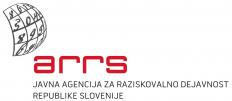Folklore and Ethnological Research on Slovenian Folk Culture
Principal Investigator at ZRC SAZU
Marjetka Golež Kaučič, PhD-
Original Title
Folkloristične in etnološke raziskave slovenske ljudske duhovne kulture
Project Team
Drago Kunej, PhD, Rebeka Kunej, PhD, Gregor Strle, PhD, Urša Šivic, PhD, Mojca Kovačič, PhD, Marjeta Pisk, PhD, Marija Klobčar, PhD, Anja Serec Hodžar, MA-
ARIS Project ID
P6-0111
-
Duration
1 January 2014–31 December 2018 -
Financial Source
ARRS

The programme is a varied body of research organised in four sections, each addressing its own subject of research, which both intertwine and, to some extent, represent a continuation of the research conducted in the previous programme, as well as add new contents: A1 Comparative research into folklore phenomena and genre typologies and genealogies in the folk and the modern, and new aspects of zoo-folkloristics, ecocriticism, and critical animal studies in folklore, literature and culture; A2 Research into imaginings of the folk through song, music, dance (contexts, agents, construction and deconstruction of the folk through time and space); B1 Restoration, interpretation, and use of the Slovenian folk audio material for folkloristic and ethnomusicological research; B2 Computer-assisted/digital folkloristics and ethnomusicology: Semantic structures of Slovenian folk songs and music. These form a scientific starting point for the folkloristic and ethnological research into Slovenian folk spiritual culture to deal with the questions of creative and functional communication of the heritage pertaining to folk songs, music and dance, its texture, text, context and its agents, touching in an interdisciplinary manner through specific aspects upon social elements of the spiritual culture, as well as identifying the differences and similarities in structure, function and poetics, the day-to-day and historical contexts, and considering the changing of tradition as a result of a new social background, new cultural dynamics, and transformations of cultural practices. The folkloristic finding (hypothesis) about components of the folk spiritual culture being one of the most evident indicators of ethnic features is combined with ethnological aspects, used in order to explore how these components are affected by agents and the social context in which they materialize. At the centre of the research is a systematic and methodical analysis of the broadest possible scope of folk spiritual culture based on field research, recording and critical treatment of sources and material, systematisation, cataloguing and digitalisation of the fieldwork and archive material, with the aim of protecting and enhancing the importance of folk spiritual culture and its creative transformation. Also included is the integration of a diachronic exploration of folk song, music and dance tradition, and a synchronic exploration, one enabling an insight into innovation and contemporary phenomena that are turning into tradition, particularly their imaginings, migrations, and perceptions. Plans for further research include connections with research in other fields such as computer and cognitive science, development of targeted research in digital folkloristics (the use of ICT in the digital multimedia archive EtnoMuza, development of Music Information Retrieval methods); development and enhancement of research that combine ecology and folklore, culture, literature and music, and development of zoo-folkloristics – a new scientific subdiscipline – by using new aspects of critical animal studies; development and enhancement of research into imaginings and migrations of the folk; use of new technological methods to continue the digitalisation of audio music recordings of folk spiritual culture, to be incorporated in the future in virtual cultural spaces.
The authors acknowledge the financial support from the Slovenian Research Agency.